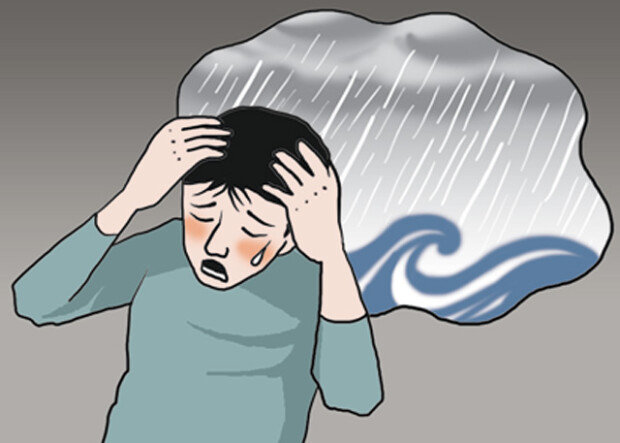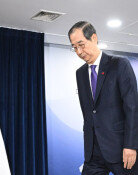Natural disasters and panic attacks
Natural disasters and panic attacks
Posted October. 12, 2019 07:28,
Updated October. 12, 2019 07:28

A radio drama about Martians attacking the earth was aired in the U.S. in 1938. Some one million people believed that the drama was real and began to flee for safety. Many accidents occurred in the process as people were in panic. A rumor spread through people that California would be completely destroyed because of a massive earthquake on April 4, 1969. Terrified by the rumor, lines and lines of people made their way out of California. The U.S. government assured them that the rumor was groundless but it could not stop them from evacuating. A strong earthquake of magnitude 9.0 hit northeastern Japan in spring 2011 and ensuing tsunami shook the coastal regions in the country. The tsunami also hit nuclear plants in Fukushima, causing explosions of nuclear reactors, and a horror of radiation leak swept the region and many Japanese left their home as a result. Against backdrop, a rumor spread across Korea that the eastward wind may send radioactivity toward South Korea. As more and more people began to fear for radioactive contamination, the South Korean government assured them that there is no radiological impact on the country. Then, another groundless rumor circulated in the country that radioactivity circles the earth, being carried in the jet stream and the rain containing radioactive materials would fall in Korea.
I found it so odd to see people believing in rumors that do not have scientific evidence. Surprisingly, however, my students were one of those people. I told them the rain does not carry radioactive materials but they all brought an umbrella even when the rain fell in a drizzle. Normally, male students wear a cap or cover their head with a hoodie when it was drizzling. The Gyeonggi Provincial Office of Education ordered all schools to close for the day. My doctor brother said he had less than 30% of the usual number of patients on rainy days. My friend, who was running a golf course, told me that as many as 120 out of 150 teams canceled their reservation on a rainy day. The Korean Academy of Science and Technology, an organization with the highest scientific authority, said the rain is harmless but people did not believe them.
According to psychologists, people fall for rumors to a surprising extent particularly when they feel uneasy about their surroundings, for example, a possibility of a war, economic uncertainties, or political crisis. These false belief turn into a conviction and is expressed in action, throwing society into panic. In particular, as far as natural disasters are concerned, people believe in rumors more easily. This month as well, Typhoon Mitag inflicted heavy damage on the country. We will experience more natural disasters that cause extensive damage due to climate change. I hope people would not panic in the face of a major natural disaster. If we respond calmly and wisely, we can mitigate and prevent the damage caused by natural disasters.







